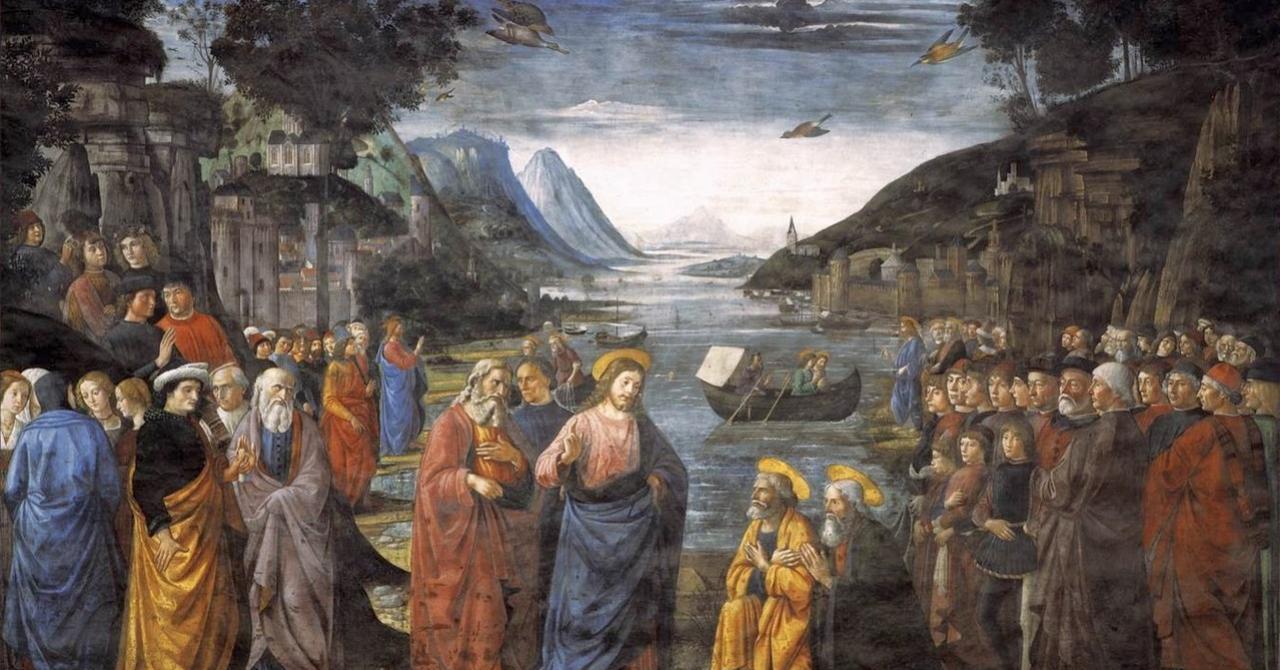
Power and Discipleship How did Jesus understand authority and power as he called us to make disciples?
All authority in heaven and on earth belonged to Jesus, yet he died after horrible torture. How did Jesus understand authority and power as he called us to make disciples?
The practice of Discipleship has greatly evolved over time and through culture in the last 2000 years. It was a key part of learning in first century Palestine, a Middle Eastern collective culture. What does discipleship mean now in our Western, pluralistic, and independent culture?
Discipleship can trigger different associations and feelings in people, particularly when it is associated to issues of authority. These feelings range from suspicion, through indifference, all the way to cynicism. It all depends on age, church experience, cultural background, and Christian tradition (among other factors). A frequently overlooked factor on our ability to be and to make mature followers of Christ (disciples) is the role of power.
Dr. Zac Niringiye says that “discipleship is about how we relate to power”, and that “we are afraid of discussing power, so we become prisoners of power.” It is fundamental to define power and authority in the context of discipleship. Dr. Andrea Sterk said: “Power is neutral... Power for What?” Power needs to be qualified by purpose.
Andy Crouch, in his “Playing God: Redeeming the Gift of Power”, tells us that power is a gift that needs to be stewarded for the flourishing of others. Crouch’s words echo Jesus’: “I came that they may have life, and have it abundantly.” (John 10:10). Jesus used his power to give life, to heal, to forgive, and to sacrificially care for others. The all-powerful God became incarnated in profound vulnerability and submission. As a disciple maker, Jesus chose complete obedience to his Father’s authority and displayed an upside-down way of understanding power. As Dr. Niringiye says, “This is the genius of the gospel: that the real power that changes lives and the world is love… The experience of the power of love is in weakness, in vulnerability, in an openness to be hurt.”
Jesus’s certainty of his authority—his right to exercise power—still has the echo of the mocking crowd, of his flogging and of his silence when he was on trial.
All authority in heaven and on earth has been given to me. In your going, make disciples of all nations, baptizing them in the name of the Father and of the Son and of the Holy Spirit, and teaching them to obey everything I have commanded you. And surely I am with you always, to the very end of the age.
In our engagement with intentional discipleship, first with Jesus and then among ourselves, we ought to be aware of power. We need to name it and decide whether to hold it or let it go as God leads. First, all power and authority belong to Jesus. Jesus is Lord. This means that he has the right or authority to “tell us what to do,” despite how that sounds to our independent Western ears. His call to make disciples is not just a suggestion nor is it based on our capacities or feelings about the matter. How do we respond to his call? Reluctance is a common response, as many biblical characters showed. Some reluctance came from humility or feelings of profound inadequacy. In other cases, reluctance came straight from unbelief. Not much has changed in our time. Our reluctance can be rooted in our Western suspicion of authority and deep value of independence. Language like “obedience” or “submission” can be associated with tyrannical exertions of power so it is unwelcomed. Sometimes, Jesus’ call to obedience is over-analysed and flattened until it becomes just another suggestion in our pluralistic world. Obedience is a trusting response to the promptings of Jesus. Choosing to trust him as a disciple and pursue the call to “make disciples” in turn, can put us out of our comfort zone, but a trusting obedience is the right response. After all, “Jesus focused more on growing obedience than on growing knowledge” (Murray Moerman).
Second, if we trust that it is Christ’s capacity and authority within and over us that can “go and make disciples,” then we go for it! It is essential though, to always remember that only God can handle power well and for the good of others. We humans ought to be aware and cautious of our propensity to hold onto power for our own benefit. How do we counter that propensity? First, by not being afraid to name and discus power in our relationships of intentional discipleship. Race, age, gender, education, wealth, appearance, and personality can be power holding factors. How can those powers be balanced? Second, by welcoming vulnerability and aiming for mutuality in intentional discipleship. Is the sharing of personal information or insights bidirectional in your discipleship conversations? And finally, by listening to God constantly and being willing to let go of power whenever and wherever God tells us to. What are the “collective rhythms of listening to God” in your relationships of intentional discipleship?
Finally, let’s remain faithful in our journey of being and making disciples intentionally. Let’s not grow weary in our obedience to Christ, despite how successful or unsuccessful we may feel, or how much or little sense it makes to be a disciple maker. Let’s trust our Lord and know that this is his plan to change the world: by the power of His love one person at a time. He is with us always and can reveal to us what discipleship looks like in each individual context.
Note. Dr. Niringiye and Dr. Sterk were speakers at Regent College’s round table discussion on the “Power and Weakness in the Witness of the Church (In History and Today)." May 2018.







